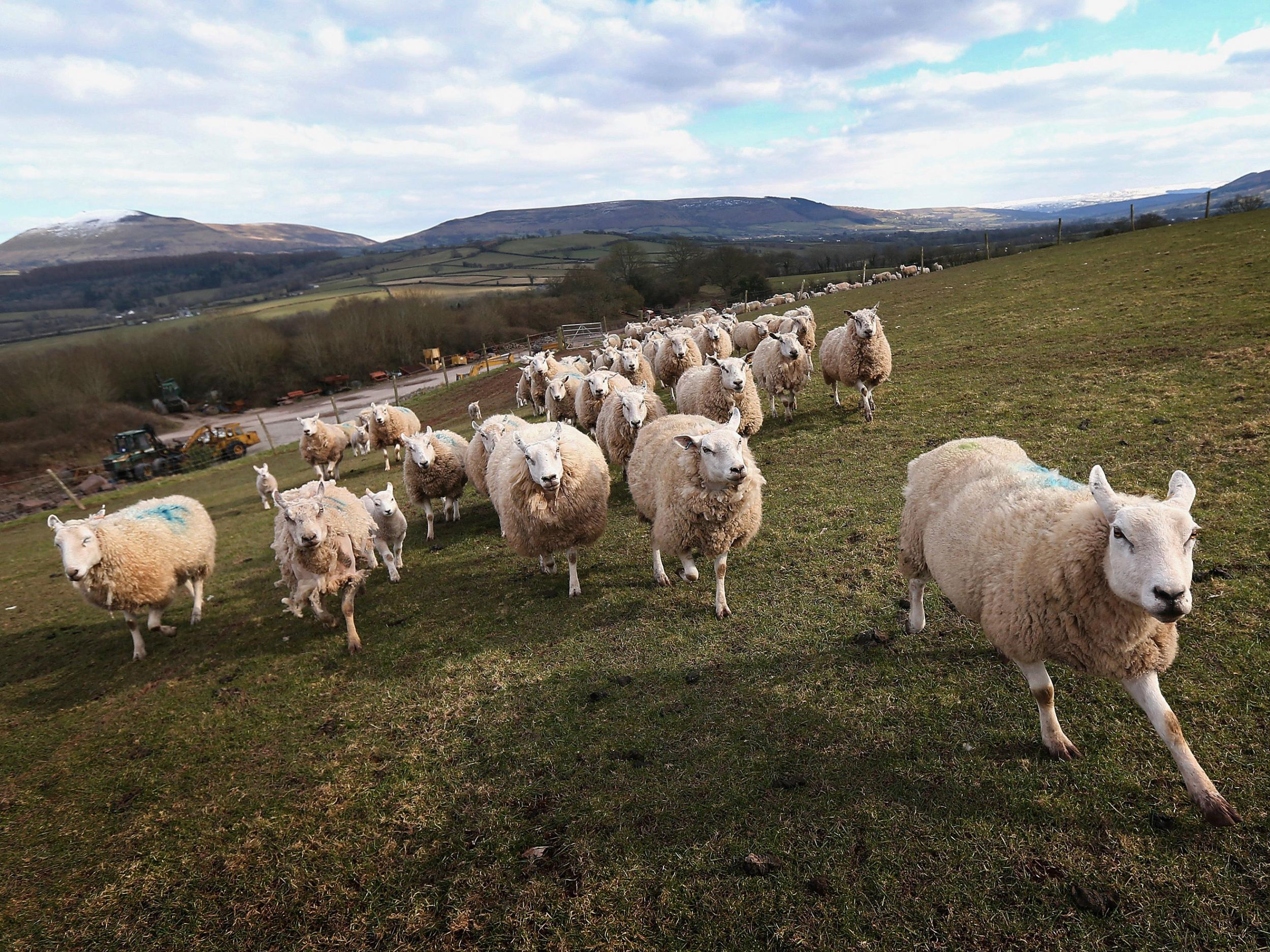Post-Brexit 'zombies' could put UK wildlife in danger, while farming faces 'significant risks', MPs warn
'It is essential for the food and farming sector to maintain full, unfettered access to the single market,' NFU says

Farmers could go bust after Brexit as subsidies are slashed, tariffs are slapped on exports to Europe and the UK is flooded with cheap imports from countries with few, if any, animal welfare rules, MPs have warned.
In a report, the Environmental Audit Committee (EAC) said the agricultural sector was facing “significant risks” because of the UK’s departure from the European Union.
And the natural world is also in danger, the MPs said, because EU rules designed to protect wildlife could become “zombie legislation” in the UK – officially the law of the land but without any official body to enforce or update it.
As the report was released, the National Farmers Union’s Vice President Guy Smith urged the Government not to water down animal welfare, food safety and environmental protections even “if we are forced to compete against agricultures in other parts of the world that clearly do not have such high standards as ours”.
However he added: “Clearly we must not be put at a competitive disadvantage.”
And he issued a plea for what amounted to the softest of Brexits – at least as far as agriculture is concerned.
“It is essential for the food and farming sector to maintain full, unfettered access to the single market while having continued access to a flexible, competent and reliable workforce,” Mr Smith said.

“Retaining tariff-free access is vital for UK farmers – it’s where 75 per cent of our food exports go.”
The EAC's report said farmers were facing "a triple jeopardy" from Brexit.
"First, leaving the Common Agricultural Policy will threaten the viability of some farms," it said.
"Second, trade agreements which impose tariff or non-tariff barriers to UK farm exports similarly threaten farm and food business incomes.
"Third, new trading relationships with states outside the European Union could lead to increased competition from countries with lower food standards, animal welfare standards and environmental protection.
"This risks putting UK farmers at a competitive disadvantage and may make it more difficult to agree and implement a strong future UK environmental policy."
EU farm subsidies currently make up to around 50 to 60 per cent of farmers’ income in the UK, with payouts from the Common Agricultural Policy totaling £3.5bn last year.
But Mary Creagh, who chairs the EAC, noted that Andrea Leadsom, the Environment, Food and Rural Affairs Secretary, had not guaranteed there would be any support, let alone this amount.
“It was concerning that the Environment Secretary gave my committee no reassurance that there would be subsidies for farmers after we leave the EU,” she said.
The EAC also warned there was a risk that legislation designed to protect the environment – much of which was created in the last few decades on an EU-wide scale – would no longer carry any teeth even after being transferred into UK law.
The fear is that there will not be a government body tasked with enforcing the rules and coming up with proposed changes where necessary. The rules could also be changed by ministers with little scrutiny by parliament, the MPs warned.
The report called for a new Environmental Protection Act to be passed during the negotiations over Brexit with the EU.
Ms Creagh said: “Changes from Brexit could put our countryside, farming and wildlife at risk. Protections for Britain’s wildlife and special places currently guaranteed under European law could end up as ‘zombie legislation’ even with the Great Repeal Bill [which will transfer much EU law into UK law]."
Trevor Hutchings, director of advocacy at WWF-UK, said the EAC’s report was a “good reminder of the challenges ahead”.
“Now more than ever, our natural environment is at risk, both at home and overseas,” he said.
But he added that Brexit “has the potential to be a once in a generation opportunity to protect and enhance nature and build a healthy and prosperous future for all”.
“As well as bringing over existing EU legislation into UK law during the negotiations, the Government must go further, and publish an ambitious and strong 25-Year Environment Plan so that we become a world leader in environmental protection, safeguarding nature for future generations,” Mr Hutchings said.
The Government plans to issue a formal response to the report at a later date.
However a Government spokesperson said: “The UK has a long history of wildlife and environmental protection and we are committed to safeguarding and improving these, securing the best deal for Britain as we leave the EU.”
Join our commenting forum
Join thought-provoking conversations, follow other Independent readers and see their replies
Comments
Bookmark popover
Removed from bookmarks